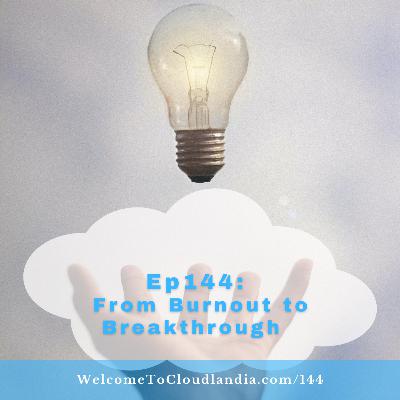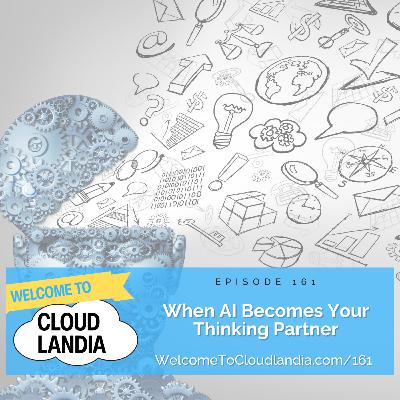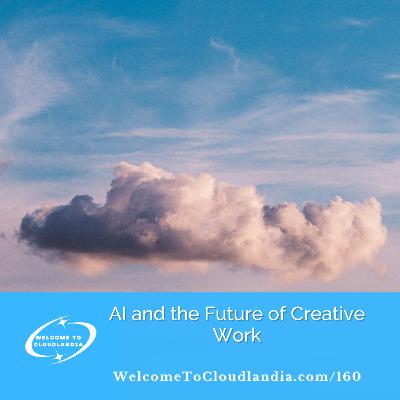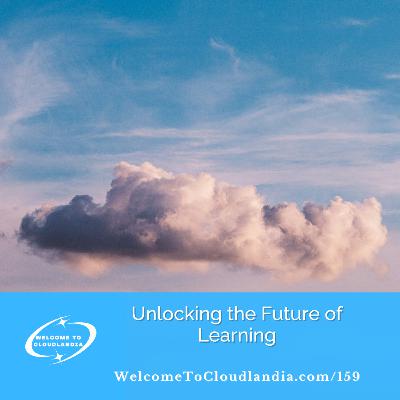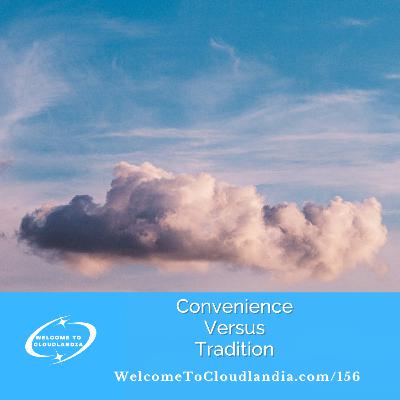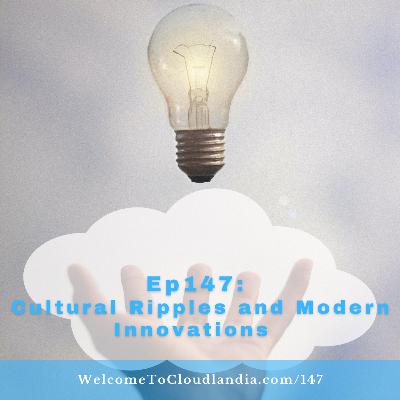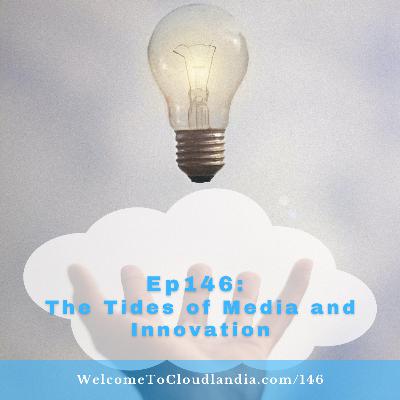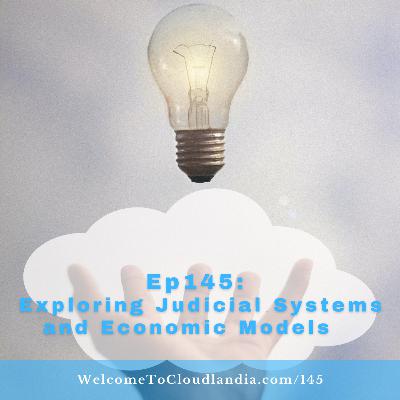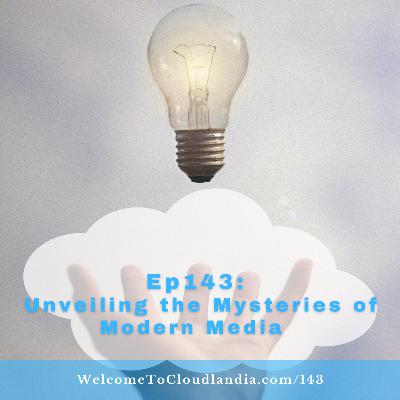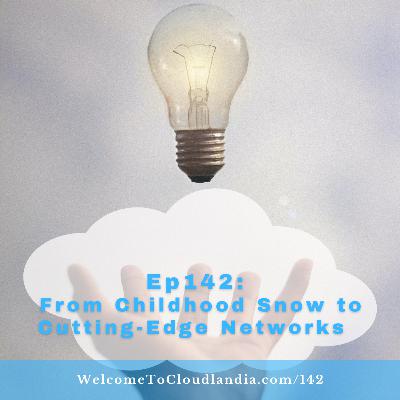Ep144: From Burnout to Breakthrough
Description
In this episode of Welcome to Cloudlandia, Dan and I explore how organizations can balance productivity with employee well-being through structured breaks and strategic planning. Dan shares insights from Strategic Coach's approach of giving employees six weeks off after three months of work, using Calgary's changing weather as a metaphor for workplace adaptability.
Looking at the British Royal Navy's history, we discuss how its organizational structure relates to modern planning methods. Dean explains his 80/20 framework for yearly planning—using 80% for structured goals while keeping 20% open for unexpected opportunities, which helps teams stay focused while remaining flexible.
The conversation turns to a long-term perspective through 25-year frameworks, examining how past achievements shape future goals. Dean shares a story about the Y2K panic to illustrate how technological changes influence our planning and adaptability.
We conclude with practical applications of these concepts, from cross-training team members to implementing daily time management strategies.
SHOW HIGHLIGHTS
Links:
WelcomeToCloudlandia.com
StrategicCoach.com
DeanJackson.com
ListingAgentLifestyle.com
TRANSCRIPT
(AI transcript provided as supporting material and may contain errors)
Dean: Mr Sullivan.
Dan: Mr Jackson, I thought I'd just give you a minute or two to get settled in the throne.
Dean: Oh, you see, there you go. I'm all settled, All settled and ready. Good, it's a little bit chilly here, but not you know, not yeah it's a little bit chilly here too.
Dan: Yeah, it's a little bit chilly here too. It just shows you there's different kinds of little bits.
Dean: Different levels. Choose your chilly. Yeah, that's so funny, are you?
Dan: in Toronto. It just brings up a thought that there are people who live in climates where 40 degrees below zero is not such a bad day.
Dean: Yeah.
Dan: And there are people who live in temperatures where it's 120, and that's not a too uncomfortable day.
Dean: Right.
Dan: So that's 160 degrees variation. If nothing else, it proves that humans are quite adaptable. I think you're right. I think you're absolutely right.
Dean: That's what that shows. I use that example a lot when talking about climate change. We're very adaptable.
Dan: Oh yeah, yeah, there is a place in. I looked this up because in Western Canada I think in the Denver area too, they have a thing called a Chinook, and I've actually experienced it. I used to go to Calgary a lot for coach workshops and I'd always, if it was like February, I'd always have to pack two complete sets of clothes, because one day it was 20 degrees Fahrenheit in the morning and it was 75 degrees Fahrenheit in the evening, the morning, and it was 75 degrees Fahrenheit in the evening, and then it stayed.
And then it stayed that way for about two days and then it went back to, back to 20. And uh, this happens about, I would say, in Calgary, you know Alberta. Uh, this would happen maybe three or four times during the winter mm-hmm yeah, so so so there?
Dean: well, there you go, so are you. Are you done with workshops therefore?
Dan: yeah, yeah of strategic coach does the whole office closed down from the 20th and 20th of well yeah 20th was our party, so that was friday night. So we have a big in toronto. We have a big christmas party. You know, we have 80 or 90 of our team members and they bring their other, whatever their other is and not all of them, but a lot of them do and now we're closed down until the 6th, uh, 6th of january. That's great. Yeah, you know what?
Dean: a lot of people that's 17 days, that's that's 17 days yeah that's a very interesting thing.
Dan: So you know, it's like um so completely shut down as there's nobody in the office nobody, you know there's people who check packages like, okay, yeah, and they live right around the corner from the office, so they just go in and you know they check and, um, you know, and if, um, but no phone calls are being taken, it's like uh company free days.
Dean: Is that what it is?
Dan: yeah, there.
Dean: There's no phone calls being answered, no emails being attended to, anything like that. It's all just shut down.
Dan: I'm going to take a guess and say yes.
Dean: Right. That's great and that's kind of you know what. One of the things that I've often said about you and the organization is that you are actually like products of your environment. You actually do what you see.
Dan: We're the product of our preaching.
Dean: That's exactly right Organizationally and individually. Right Organizationally and individually. And when I tell people that new hires at Strategic Coach get six weeks of three days After three months.
Dan: After three months. Yeah, yeah, yeah, they don't get any free days for the first three months, but you know, and they pass the test, you know they pass the test. Then in the first year year, they get six weeks, six weeks, yeah, and it's interesting, right?
Dean: Nobody gets more. Right, everybody gets six weeks.
Dan: Shannon Waller, who's been with us for 33 years. She gets her six weeks and everybody else gets their six weeks, and our logic for this is that we don't consider this compensation OK right, we do it for two reasons so that people don't burn out.
You know they don't get, you know they they're not working, working, working, in that they start being ineffective, so they take a break. So they take a break and we give a one month grace period in January If you haven't taken your previous six weeks for the year before. You can take them during January, but you can't carry over. So there's no building up of three days over the years. Right, yeah, if you have, if you don't take them, you lose them. And but the other thing about it that really works one, they don't burn out. But number two, you can't take your free days in your particular role in the company, unless someone is trained to fill in with you so it actually it actually pushes cross training, you know.
So in some roles it's three deep, you know they, yeah, there's three people who can do the role, and so you know you know, we've been at it for 35 years and it works yeah, oh, that's awesome dan I was curious about your you know.
Dean: Do you have any kind of year end practices or anything that you do for you know, preparing for the new year, reflecting on the old year, do you do anything like that?
Dan: I'd probably go through a bottle ofish whiskey a little bit quicker during that period that's the best I'm. I'm not saying that that's required, but sometimes exactly, just observation.
Yeah, uh-huh you know, knowing you, like you

